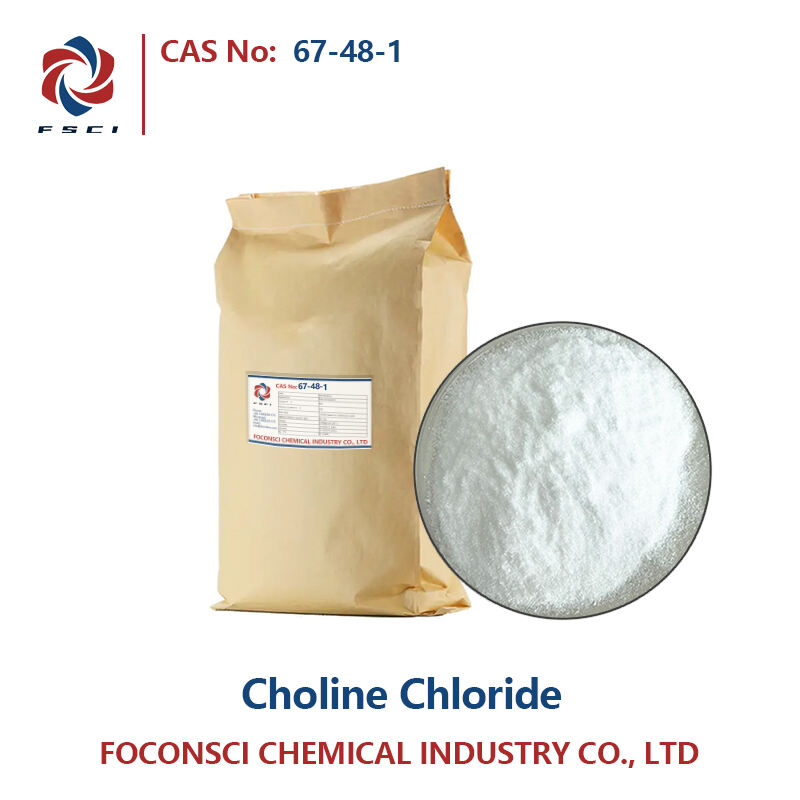Understanding Choline Chloride and Its Health Benefits
In recent years, choline chloride has garnered attention as a vital nutrient linked to various health benefits. Although often overshadowed by more prominent nutrients, such as vitamins and minerals, choline plays a crucial role in human health. In this article, we will explore what choline chloride is, its recommended dosage, potential side effects, and its myriad health benefits, integrating insights from recent studies along the way.
What is Choline Chloride?
Chemical Composition and Structure
Choline chloride, known scientifically as a quaternary ammonium compound, is an essential nutrient found in various foods, particularly those rich in fat. The chemical formula for choline chloride is C5H14ClN, which signifies its complex molecular structure. Choline can be synthesized in the body, but dietary intake is often necessary to meet recommended levels.
Choline chloride is available as a colorless crystalline powder with a slightly salty taste. It is foul-smelling compared to other choline sources, such as phosphatidylcholine. The compound is highly soluble in water, making it an excellent candidate for supplementation and fortification in food products.
Recommended Dosage and Safety Considerations
Daily Intake Guidelines
The recommended dietary allowance (RDA) for choline varies by age, sex, and life stage. Adults should aim for approximately 425 mg per day for women and 550 mg per day for men. However, pregnant and breastfeeding women require higher amounts, with recommendations suggesting 450 mg and 550 mg respectively.
Recommended forms of dietary sources for choline include eggs, liver, fish, nuts, and soy products. However, for those who find it difficult to meet these requirements through diet alone, choline chloride supplements can provide a beneficial alternative.
Potential Side Effects and Risks
While choline chloride is generally considered safe when consumed in recommended doses, certain individuals may experience side effects such as gastrointestinal upset, fishy body odor, or sweating. Most adverse reactions stem from excessive intake, so it’s critical to adhere to recommended guidelines.
There are some cases where choline chloride use should be avoided. Individuals experiencing liver disease or those on specific medications, especially anticholinergic drugs, should consult healthcare professionals prior to starting supplementation.
Who Should Avoid Choline Chloride
Certain people are better off avoiding choline chloride products. This includes individuals with hypersensitivity to choline or any component in the preparation. Additionally, medical consultation is needed for pregnant or nursing women contemplating supplementation.
Health Benefits of Choline Chloride
Choline chloride presents a plethora of health benefits, some of which are supported by science:
1. Supports Brain Health and Cognitive Function
Choline is a precursor for acetylcholine, a neurotransmitter essential for brain health. Research suggests that adequate choline intake may enhance memory development and cognitive function. Some studies even associate higher choline levels with a reduced risk of cognitive decline and neurodegenerative conditions such as Alzheimer's disease.
2. Aids Liver Function
Choline plays a pivotal role in lipid metabolism and helps prevent the accumulation of fat in the liver. Deficiency in choline can lead to non-alcoholic fatty liver disease (NAFLD), demonstrating the importance of adequate choline intake for optimal liver health.
3. Supports Fetal Development
Choline is particularly vital during pregnancy, contributing to fetal brain development and reducing the risk of congenital disabilities. Pregnant women with higher choline levels are more likely to have children with enhanced cognitive abilities, making it crucial for expectant mothers to consume adequate amounts.
4. Involvement in Metabolism
Choline nucleotide metabolism is crucial for synthesizing phospholipids in cell membranes. By facilitating metabolic processes, choline chloride contributes significantly to overall metabolic health, supporting energy levels and efficient nutrient utilization.
5. May Reduce Inflammation
Emerging research suggests that choline chloride has anti-inflammatory properties. By supporting the body’s inflammatory response, this nutrient may help mitigate chronic inflammation linked to various diseases.
Conclusion
Summary of Key Points
Choline chloride is an essential compound that plays multifaceted roles in human health, ranging from supporting brain health to assisting liver function and fetal development. The recommended intake varies based on individual needs, and while it is generally safe, attention to dosage is advised.
As we continue to learn more about the importance of lesser-known nutrients like choline, the potential for supplemental benefits becomes more apparent. Incorporating choline-rich foods in the diet and considering supplementation where necessary can drastically improve both physical and mental health.
Future Research Directions
The body of research surrounding choline chloride is expanding, with future studies likely to delve into its potential impact on conditions such as depression, cardiovascular health, and age-related ailments. Ongoing exploration will help us unlock further benefits and ensure the critical role of choline is recognized within the health community.

Purchase Choline Chloride here.

Explore more about Choline chloride here.
While choline chloride may not be the most widely discussed nutrient, its significance in maintaining health and preventing diseases undoubtedly warrants attention. As we adapt our understanding of nutrition, ensuring that we meet our daily choline needs will be vital for our overall well-being.


 EN
EN
 AR
AR
 BG
BG
 HR
HR
 CS
CS
 DA
DA
 NL
NL
 FI
FI
 FR
FR
 DE
DE
 EL
EL
 HI
HI
 IT
IT
 JA
JA
 KO
KO
 NO
NO
 PL
PL
 PT
PT
 RO
RO
 RU
RU
 ES
ES
 SV
SV
 TL
TL
 IW
IW
 ID
ID
 LV
LV
 LT
LT
 SR
SR
 SK
SK
 VI
VI
 HU
HU
 TH
TH
 TR
TR
 GA
GA
 CY
CY
 KA
KA
 LA
LA
 MN
MN
 KK
KK
 LB
LB

